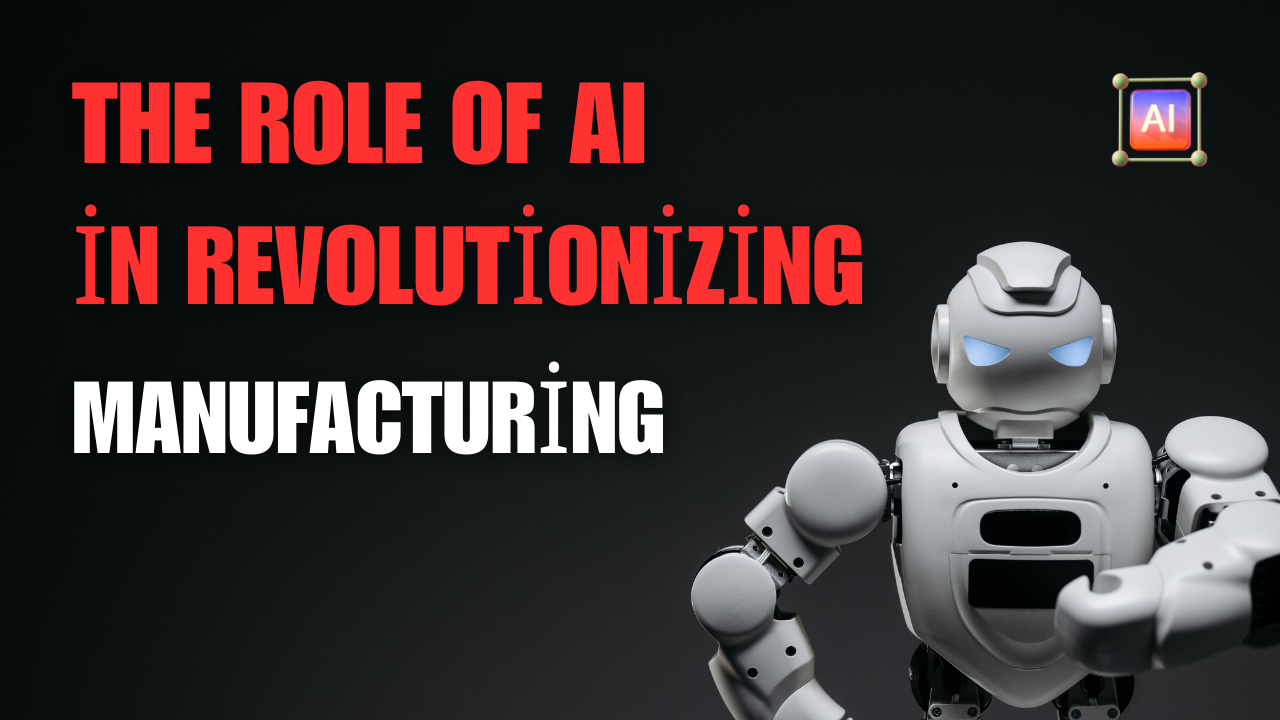Introduction
Artificial Intelligence has been among the buzzing terminologies across all domains; however, its transformation potential across manufacturing is quite perceptible. AI technology can help in improving efficiency, cutting costs, and producing better quality products. This blog looks at how AI is disrupting the manufacturing industry through historical developments and future trends.

Historical Context
The manufacturing industry has jumped years ahead from the manual labor and early decades of assembly lines. The first significant jump that happened in manufacturing was through the process of automation. Automation gave rise to quick and uniform manufacturing. That was followed by another remarkable evolution, using computer systems in manufacturing and creating the era of computer-aided design (CAD) and computer-aided manufacturing (CAM). AI represents the latest frontier in this continuing evolution that promises increased efficiencies and innovations.

Key Applications of AI in Manufacturing
- Predictive Maintenance
Up to this point, predictive maintenance is among the AI applications that have the most value to manufacturing. Manufacturers can use sensors and AI algorithms to monitor machinery continuously, with predictions about when a machine will likely fail—resulting in planned maintenance to avoid costly breakdowns. For instance, companies like General Electric and Siemens have already been able to adopt predictive maintenance with great success—resulting in enormous cost savings and increased operational efficiency. - Quality Control
AI is set to transform quality control methodologies within the manufacturing industry. Traditional quality control methods can be very time-consuming and leave room for human error. AI-powered systems, on the other hand, can scan products for defects in real time with both precision and speed. This not only assures uniformity in the final products but also curtails wastage. The industries such as BMW and Tesla, which have implemented AI in quality assurance, thus maintain a relatively higher level of customers satisfaction and have a lower cost of production. - Supply Chain Optimization
As the supply chain management can be exceptionally complicated, AI solutions put light on its routes and provide improved solutions to all of them. AI, on the other hand, can predict demand with much more accuracy, manage an optimized level of inventories, and optimize logistics to minimize costs while enhancing delivery times. For instance, Amazon uses AI to manage its vast supply chain network for fast and efficient products deliveries to consumers around the world. - Robotics and Automation
There are also increasing applications of AI-powered robots in manufacturing environments. These robots can perform tasks of higher precision and speed in assembly, packaging, and material handling. Cobots have thus been designed for these purposes: robots that can work alongside human workers to increase their productivity and safety. Leading corporations like FANUC and KUKA are now gearing toward the manufacturing of advanced robotic systems incorporated with AI to enhance production possibilities within the manufacturing sector. - Production Planning and Scheduling
To satisfy customer demand and to make appropriate utilization of resources, it is pertinent that production planning and scheduling be done efficiently. The AI algorithms can assist in designing optimum schedules through the assimilation of comprehensive data regarding factors such as machine availability, labor resources, and the material supply. This result helps an organization become more productive and flexible in its productions, as seen in companies like Toyota and Ford that use AI to streamline their processes.
Benefits of AI in Manufacturing
The advantages of using AI in manufacturing are numerous. It optimizes processes, automates complex tasks, and increases productivity and efficiency. This means that it reduces the operational costs incurred due to downtimes and losses in resource utilization. Real-time monitoring and control of products can provide quality products and consistency of output. AI enhances worker safety by taking over risky tasks and job satisfaction through exciting and less monotonous work.

Challenges and Considerations
While this integration holds enormous benefits in the manufacturing industry, it also poses its share of challenges. Integrating AI into already running systems and processes can be difficult and costly. Data security and privacy will be significant concerns because the AI systems will need vast volumes of data to process. A workforce that is skilled enough to develop, implement, and maintain these AI systems will be required; thereby, a continuous learning and upskilling process. This should also apply to ethical aspects, particularly concerning the consequences on workforces, which is one crucial criterion that should be included in allowing fair and balanced acceptance and adoption of AI.

Future Trends and Innovations
Indeed, the future of AI in manufacturing will witness the rise of a range of technologies. Digital twins in the manufacturing sector and smart factories will be powered through IoT and AI for autonomous operations. The emerging quantum computing technology enables the solution of complex problems in manufacturing that classical computers cannot tackle in the near future. In this regard, it can be foreseen that with AI, the next decade will be marked for manufacturing processes with a new glow—enhanced innovation and efficiency to a previously unknown level.

Conclusion
AI promises to revolutionize the manufacturing industry and provide many benefits, from improved efficiency to better product quality. With the implementation of AI, manufacturers will be better poised to compete in the current global marketplace, which is changing faster than ever. Whether everything will go fine with this or not, there is no certainty. However, the potential payoffs are such that struggling with this adoption might be a good bet. The future of manufacturing is undoubtedly filled with innovation and productivity like never before.

